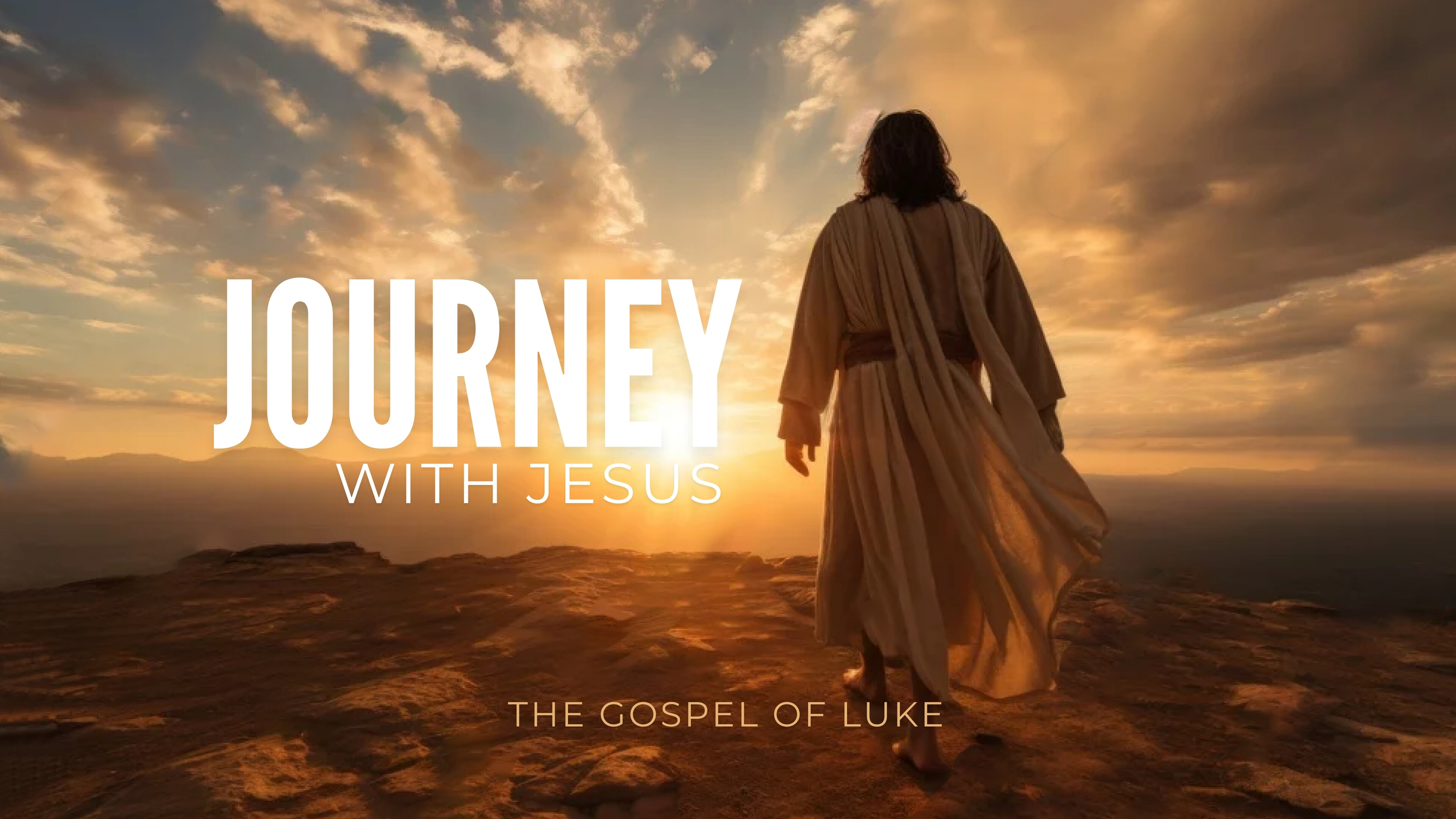
Journey with Jesus
This Gospel’s author, Luke was not an eyewitness to Jesus’ life, death, or resurrection. However, he carefully investigated the events, interviewing eyewitnesses and consulting earlier accounts. The result is the most comprehensive Gospel, and its sequel, the Acts of the Apostles. Luke’s Gospel begins with the parallel birth narratives of John the Baptist and Jesus, includes a unique glimpse into Jesus’ youth, and then focuses on his ministry in Galilee and Judea. A major theme throughout is the journey—Jesus travels through villages and cities, ultimately heading toward Jerusalem, where he will suffer, die, and rise again. Along the way, Jesus reveals his identity and mission, while calling his disciples to follow him and embrace their own path of discipleship. Luke’s Gospel is more than a biography; it is a spiritual roadmap. As we read it, we are invited to journey with Jesus, discover who he is, and learn what it truly means to follow him.
01 — Luke: The Gospel for ‘Outsiders’
Speaker: Ian Brinksman
2025 Sep 07 Outline Study Guide Group Material Song List Livestream
Theophilus, a non-Jewish person (Gentile), was a new believer. Luke writes his carefully investigated narrative to reassure him that he belongs in this racially mixed, & predominantly Jewish community. In his Gospel, Luke shows how God takes “outsiders,” & makes them “insiders,” those who are both involved with, & even related to God through Jesus. God also wants us to know that we belong in his community even though we may have no history with him or his people. It’s that kind of message that Luke is communicating to us through his Gospel. Do you feel like you don’t fit in at church? When you hear others’ stories of their encounters with Jesus, does it sound strange to you? When you think about how you were raised, do you feel disadvantaged? Well, what Luke writes in his Gospel is for you. But maybe you’ve been thinking lately that you’re drifting away from Jesus; feeling cold toward him. This book is for you. And maybe you’re someone who has no idea who Jesus is. Luke is definitely a great introduction to him, & you’re going to get lots out of this journey we’re about to launch.
02 — God Prepares Our Journey
Speaker: Roei Stanley
2025 Sep 14 Outline Study Guide Group Material Song List Livestream
Luke, writing as a careful historian, anchors his account during the reign of Herod the Great—a violent and paranoid ruler— underscoring the harsh reality of Roman rule over Israel. The Jewish people longed for deliverance after the so-called “400 years of silence,” though events like the Maccabean revolt and the Septuagint’s translation reveal that God was still at work; indeed, ‘God never stops working.’ The story of Zechariah and Elizabeth showcases God’s faithfulness as He chooses a humble, righteous couple to miraculously bear John the Baptist in their old age. Zechariah’s name —“God remembers”— underscores that no prayer is forgotten, even when our hope fades. God often works through ordinary folk with faithful hearts. John’s role as the forerunner of Christ bridges the Old and New Testaments; born in the old era, he fulfills Malachi’s prophecy (four centuries earlier) of an Elijah-figure, preparing the way for Jesus, the long-awaited Messiah and Redeemer.
03 — The Way God Works & The People God Uses
Speaker: Nathan Tomes
2025 Sep 21 Outline Study Guide Group Material Song List Livestream
This message explores how God works through lowly individuals, focusing on the biblical annunciations to Zechariah and Mary. Zechariah, a humble priest, and Mary, a poor, young rural woman, both receive divine calls despite their low status. Zechariah has low a status, Mary’s status is lower. Their contrasting responses to the angel Gabriel are highlighted: Zechariah doubts and is silenced as a result, while Mary trusts fully and accepts her role with faith. The text emphasizes Mary’s profound trust, expressed in her praise-song, ‘the Magnificat,” showcasing her intimate knowledge of Scripture and God’s faithfulness. Mary’s calling is costly, involving social shame and danger, yet she remains faithful throughout her life. The passage encourages believers at all social levels to respond with humble trust to God’s call, following examples like Mary, Zechariah, Barnabas, and Lydia. Mary’s example underscores the importance of contemplating Scripture to deepen trust in God’s promises & invites readers to live faithfully with the assurance that God works powerfully through the humble.
04 — 400 Years of Silence; Spirit Departed, No Prophets?
Speaker: Nigel Tomes
2025 Sep 28 Outline Study Guide Group Material Song List Livestream
“400 Years of Silence?” We’ve all heard it—God stopped speaking after Malachi. The Spirit withdrew. No prophets, just silence. But Scripture says otherwise. Luke’s Gospel opens, not with silence, but with prophecy from key figures. Zechariah, Elizabeth, and Mary speak by the Spirit, announcing the Messiah. And John the Baptist? He’s not the first voice after silence—he’s the climax in a long line of Spirit-filled prophets pointing to Christ. So where did the idea of “silence” come from? It’s a convenient myth, crafted between the testaments, to dismiss voices challenging religious and political power. This oft-repeated myth became a deeply-entrenched ‘historical fact.’ But God’s prophets never fit neatly into institutions. They spoke truth to kings, priests, scribes, Pharisees—anyone who opposed God’s ways. And when John and Jesus came, that same myth was used to discredit them. Here’s the truth: God never stopped working. His Spirit never stopped moving. Prophecy never died out. The real question is—are we listening? Jesus’ followers are called to tune in to His voice, welcome His Spirit, and courageously speak His truth. Even when the world resists.